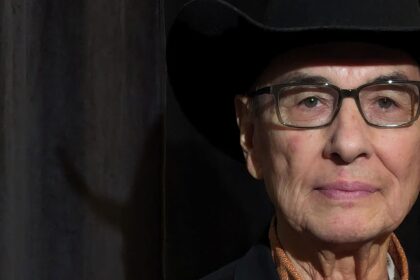Article contentProsper addressed the minister’s concerns. He called on the Senate committee members to hear and respond to the words of all of the 57 witnesses and 47 written submissions – most of which supported change. They represented over half of all 634 First Nations across Canada.Article content“Do we listen to the minister and do nothing and wait patiently for stand-alone legislation to fix the second-generation cutoff – or do we listen to the numerous individuals and collective rights holders who have come before this committee pushing for us to make that change now,” he said.Article content Legal expert and board member of the Indigenous Bar Association, Suzanne Patles of Eskasoni, says First Nations women have suffered enough under the Indian Act and spoke against section 6.2 (Indigenous status requirements) when she and a colleague made a submission to a special Senate Committee recently. CONTRIBUTED/Cape Breton PostArticle contentEskasoni community activist and legal clerk Suzanne Patles, who testified before the committee with a colleague on behalf of the Indigenous Bar Association last month, said too much time has already gone by.Article content“Since the introduction of the second-generation cut-off rule in 1985, First Nations women and their descendants have endured the deleterious effects of this arbitrary and harmful blood quantum formula that was unilaterally imposed on them,” she told the Senate committee. “Since that time, Parliament has failed to introduce amendments to the Indian Act to eliminate the second-generation cut-off rule in the face of unequivocal and methodical advocacy by First Nations women, national organizations and communities calling for its removal.”Article contentArticle contentSUPPORTArticle contentSenator Marilou McPhedran of Manitoba was one of several to give an impassioned plea of support for Prosper’s amendments on Tuesday. She spoke of previous failed attempts to change the Indian Act. McPhedran said recent weeks have been a continuation of work done in 2017 when the Senate had a similar opportunity to address the “unquestionable, ongoing discrimination on the basis of sex against Indigenous women in this country.”Article content“Indigenous women in this country are as deserving in law for their charter rights, as any other woman in this country,” she said and noted that equality for women is enshrined in Canada’s Constitution.Article contentProsper said he is optimistic that if the government refrains from engaging in any “procedural tactics” common in changing one of their bills, the amendments to status will be accepted.Article content“We’re quite mindful of this history and really hope the government doesn’t do this once again because what we’re talking about is discrimination. You can’t deny equality and justice for individuals that have been waiting for it for a very long time,” he said. “We’re hoping government will act honourably in that regard.”Article contentArticle contentACTION REQUIREDArticle contentProsper said these are issues that have been going on for decades and they require action now as opposed to years later.Article content“The minister is fully aware that there are remaining inequities within the Indian Act – discriminatory practices and provisions – so the best approach is to deal with it once and for all.”Article contentHe said he wants to avoid further protracting litigation and costs.Article contentProsper said there is more work to do. He encouraged Indigenous women and those who love them to write their local MPs to express their opinions and feelings. They can also apply to appear before committees in the House of Commons.Article content“There’s lots they can do to share their voice and let government know that this has to stop,” Prosper said. “It’s about belonging. It’s about the ability for First Nations to determine who is a member of their community as they have for many, many generations.”Article contentProsper said he wants to thank the women who have pushed so hard for decades to right this wrong.Article content“I believe there is nothing more vital to the survival of First Nations than this change.”Article contentThe bill will now go to the Senate Chamber Nov. 27, where Senators will vote on whether to accept the changes made in committee and then vote again on third reading. Upon passage at third reading, the bill will move to the House of Commons for consideration and further study.Article contentRosemary Godin is the Local Journalism Initiative reporter for the Cape Breton Post, an initiative sponsored by the federal government.Article content
Its about belonging; Nova Scotia senator pushes for amendments that will end loss of Aboriginal status











